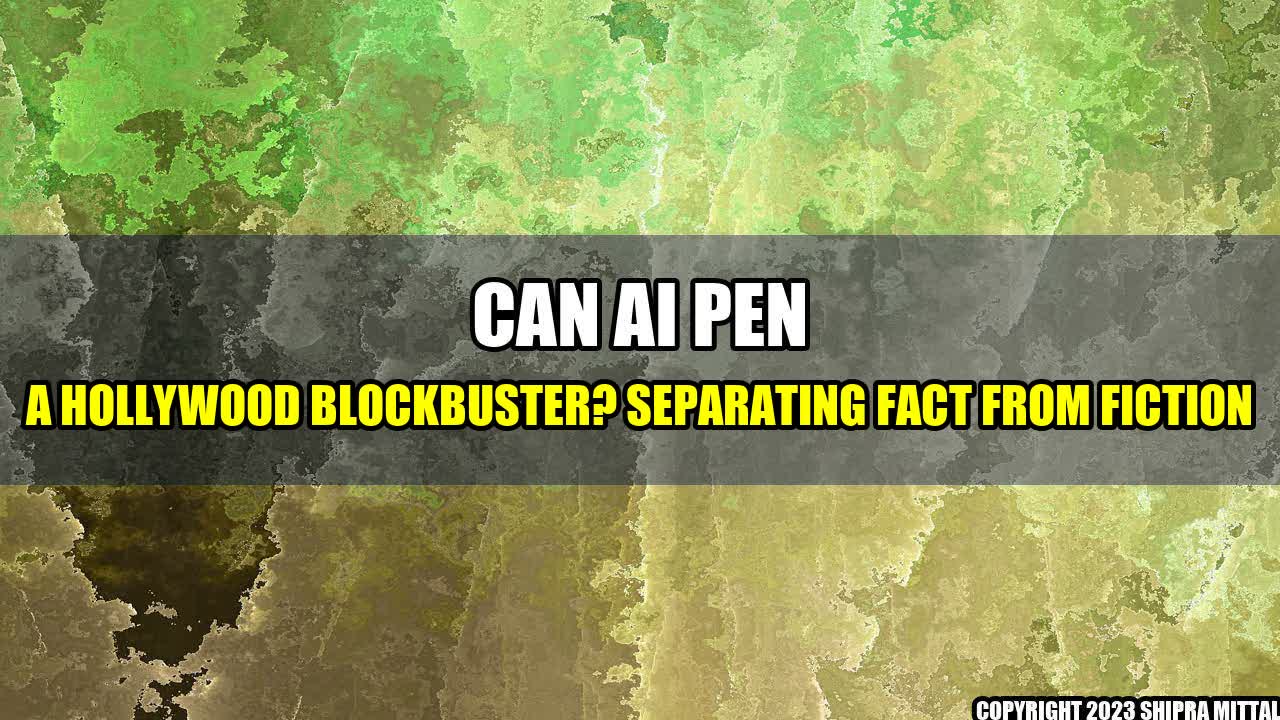
Introduction:
It was a cold winter day in Hollywood when the writer's strike began to loom large. Screenwriters all over the city were getting restless as they realized that their jobs were at stake. But little did they know that their biggest competition would soon come from a totally unexpected source - Artificial Intelligence.
The possibilities of AI are endless, and Hollywood is just one of the industries that is exploring its potential. With an almost infinite vocabulary, AI algorithms can generate thousands of lines of dialogue, create complex storylines, and even come up with characters that audiences can relate to.
But can AI really replace screenwriters? Can it create a masterpiece like Casablanca, or is this just another sci-fi fantasy? In this article, we will explore the current state of AI in screenwriting, analyze some real-life examples, and provide a critical commentary on the issue.
The Rise of AI in Screenwriting
In recent years, AI algorithms have been used to generate entire scripts, including scenes, dialogue, and even stage directions. One of the companies that are leading the charge is called ScriptBook, which claims that its AI can predict the success of a movie with 85% accuracy based on its script.
Another AI startup, called OpenAI, also created a language model that could write human-like text, including stories and poems. The model, known as GPT-2, was so powerful that it initially decided not to release it for fear of misuse.
Real-life Examples
One of the earliest examples of AI-generated content is a short film called Sunspring, which was written entirely by a recurrent neural network. The 9-minute film premiered at the Sci-Fi London film festival in 2016, and while its storyline was bizarre (to say the least), it showed that AI could create original content that could be appreciated by audiences.
In October 2020, a team of AI researchers launched an AI writing tool called the "Hemingway AI" that could generate convincing text that emulates the style of Ernest Hemingway, the famous author. The team fed the algorithm some of Hemingway's works, and it analyzed the author's writing style to create original content that was undistinguishable from the real thing.
Conclusion:
While AI-generated scripts may become more prevalent in the future, it is unlikely that they will replace human screenwriters altogether. The creative process of writing is intricate, and many factors contribute to the success of a movie. Besides, AI-generated content lacks the emotional depth that can only be achieved through authentic human experiences.
However, AI algorithms can help in augmenting the creative process by providing insights into the audience's behavior, generating new ideas, and improving efficiency. Ultimately, AI and human writers may work together to create new and exciting stories that entertain and inspire audiences worldwide.
Reference URLs and Further Readings:
1. https://www.scriptbook.io/#/
2. https://openai.com/blog/better-language-models/
3. https://www.youtube.com/watch?v=LY7x2Ihqjmc
4. https://www.technologyreview.com/2020/10/08/1009652/hemingwrite-ai-emulate-literary-styles/
Hashtags:
#AIinScreenwriting #ArtificialIntelligence #Screenwriting #Hollywood #FutureofMovies #GPT2 #SunSpring #HemingwayAI #Collaboration #WritingProcess #AudienceBehavior #Entertainment
Category: Technology/Writing
Akash Mittal Tech Article
Share on Twitter Share on LinkedIn